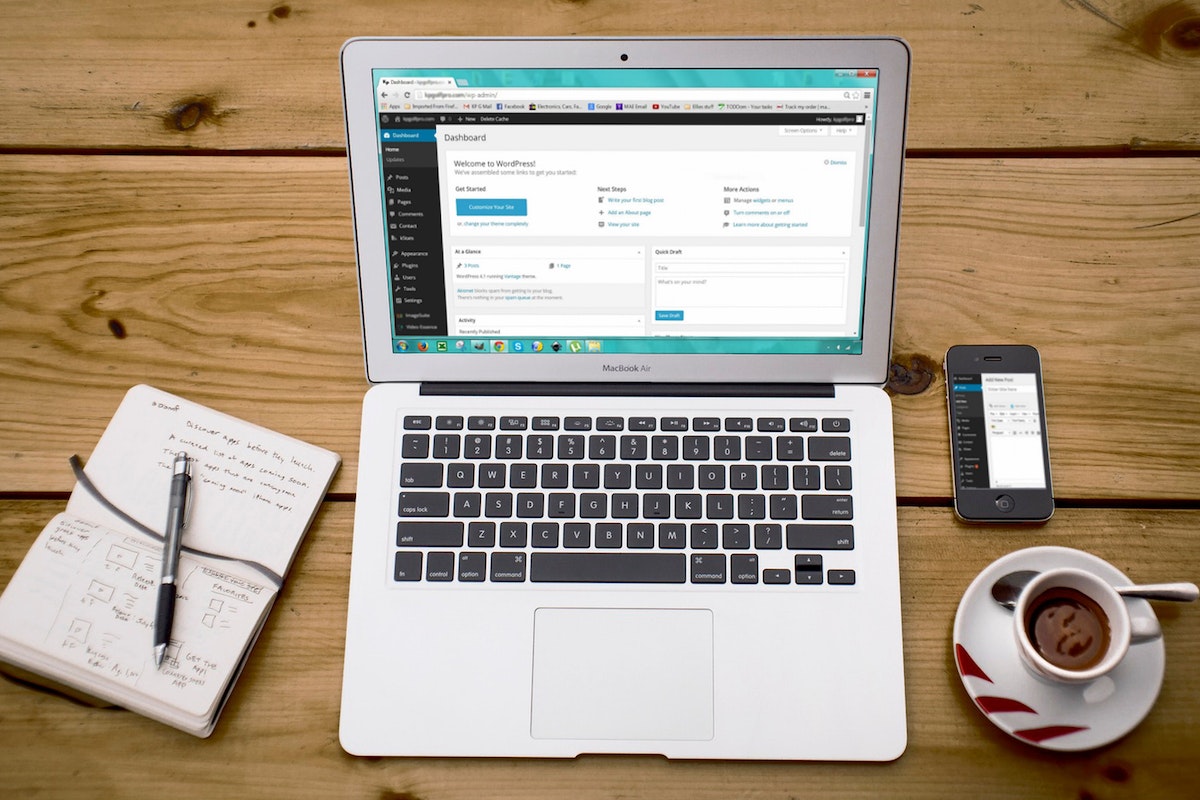WordPress is the most popular blogging software. It allows you to create a website quickly. However, to get the most out of this versatility, you must learn how to use it properly and apply SEO-friendly practices. Here are six best practices to help you master WordPress and create an SEO-friendly blog for your business.
1. Get To Know Your WordPress Dashboard
The first thing you need to do when you log into WordPress for the first time is to get to know your dashboard. This is where you will spend most of your time as a WordPress user.
Your Dashboard has several sections:
- Home – this is where you will see recent posts from blogs you follow and your site’s main blog. If you have any comments on posts or someone has commented on yours, these will also show up here. You can also use the search bar at the top of this page to search through all WordPress sites on the web or within specific categories such as “news,” “photography,” or “technology.”
- Posts – this section lists all your published posts organized by the month in which they were published (or created if they haven’t yet been published). There are additional filters at the top right if you want to narrow down your search results by category, author, or post type (such as video).
2. Learn About Customization Options
The second step to mastering WordPress is learning about customization options. There are many different ways to customize WordPress, but the two most popular are theme and plugin customization. WordPress themes are pre-made templates that can be installed onto your website. There are thousands of free and premium themes available so take a look and choose one that speaks to you.
Customization allows you to create a website that reflects your business brand identity, making it easier for visitors to remember and trust it because they recognize it as a familiar place where they can get information about whatever it is they’re looking for.
3. Schedule Regular Manual Backups
If your site goes down, you can lose a lot of potential customers and money. By backing up your site regularly, you can ensure that if something goes wrong with your site, you won’t lose any data or customers. This also gives you peace of mind that if anything happens to your hosting provider or their data center that affects their ability to offer services, you’ll still have access to all your content and data.
WordPress has a built-in backup feature that allows you to schedule automatic backups. However, you should also do manual backups regularly and store them separately. This will give you an additional layer of security against any possible damage or loss of data.
4. Get To Know Your Plugins
WordPress comes with many useful plugins out of the box, but thousands more are available through the WordPress repository or other locations on the web.
Plugins extend WordPress functionality by adding new features and functionality to your website. Plugins can be installed directly from the WordPress admin area or manually via FTP if you’re hosting your site.
There are two reasons why it’s important to get familiar with the plugins in your site: security and performance issues. Someone could break into your site by exploiting those vulnerabilities if your site uses plugins with known security issues. This could result in sensitive data being stolen from your site (think passwords). Worse, hackers could use it as an attack platform against other sites.
5. Use Themes to Enhance Your Presence
A theme is a collection of files that determines your site’s appearance. Themes make it easy to customize aspects like typography, layout, and color schemes without having to learn HTML or CSS coding languages (which are necessary if you want complete control over your site). You can choose from thousands of free themes available on WordPress.org or pay someone else to create one for you.
6. Take a WordPress Online Course
The main reason why you should take WordPress courses is that they will help you build your website from scratch. You will be able to understand how to create content, add images and videos, and much more. This will give you valuable knowledge which can be used when creating or editing your website.
The second reason why these courses are beneficial is that they will give you an insight into how to make money with your website. These courses will teach you how to market your site and make money with affiliate marketing if you want to build an income stream from your website.
WordPress is a powerful and flexible platform that can help you build a website for your small business. But it can also be daunting to learn at first. Fortunately, these best practices will help you save time and frustration while still getting the most out of WordPress’s features.

